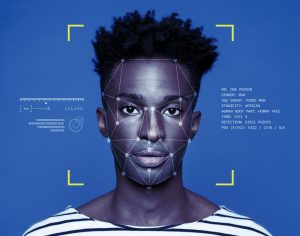 As the world continues to deal with the unprecedented challenges caused by the COVID-19 pandemic, Artificial Intelligence (AI) systems have emerged as a potentially formidable tool in detecting and predicting outbreaks. In fact, by some measures the technology has proven to be a step ahead of humans in tracking the spread of COVID-19 infections. In December 2019, it was a website-leveraging AI technology that provided one of the key early warnings of an unknown form of pneumonia spreading in Wuhan, China. Soon after, information sharing among medical professionals followed as experts tried to understand the extent of the unfolding public health crisis. While humans eventually acted on these warnings, the early detection enabled through use of AI-supported data aggregation demonstrates both the promise and potential concerns associated with these systems.
As the world continues to deal with the unprecedented challenges caused by the COVID-19 pandemic, Artificial Intelligence (AI) systems have emerged as a potentially formidable tool in detecting and predicting outbreaks. In fact, by some measures the technology has proven to be a step ahead of humans in tracking the spread of COVID-19 infections. In December 2019, it was a website-leveraging AI technology that provided one of the key early warnings of an unknown form of pneumonia spreading in Wuhan, China. Soon after, information sharing among medical professionals followed as experts tried to understand the extent of the unfolding public health crisis. While humans eventually acted on these warnings, the early detection enabled through use of AI-supported data aggregation demonstrates both the promise and potential concerns associated with these systems.
Articles Posted in Artificial Intelligence
Fighting Financial Wrong-Doing with the Power of AI
We’ve discussed before the potential of AI to detect financial crimes like money laundering. On March 23, colleague Deborah Thoren-Peden will explore the growing nexus between artificial intelligence and the detection and prevention of financial misdeeds.
In “Leveraging AI to Combat Financial Crimes,” Thoren-Peden will be joined by Sam Small (ZeroFox) and Tim Mueller (GuideHouse) to discuss how AI is being integrated into RegTech solutions for enhanced AML compliance and screening, and how AI is being used to monitor insider trading, market manipulation and other suspicious market activities. In addition, they will identify best practices from law enforcement and financial institutions where AI is being successfully deployed to curb financial criminal activity.
News of Note for the Internet-Minded (11/12/19) – AI Biases, Deepfake Policies and Millions of Medical Records
Apple gets around to AR, the NHL enters esports, the Internet of Things may bring new meaning to “workers unite,” so many medical records, and more …
A Risk-Averse Industry Continues Its Slow Embrace of AI
It’s difficult finding an industry that doesn’t stand to be transformed in some way by artificial intelligence. Yet no matter how gleaming the potential, some industries are naturally more cautious than others. In her latest post, “Artificial Intelligence: A Boon for Insurance Underwriting?”, Ashley E. Cowgill touches on the insurance industry’s reluctance while pointing to some areas where AI stands to be more quickly embraced.
RELATED POSTS
Artificial Intelligence: A Grayish Area for Insurance Coverage
Artificial Intelligence and Money Laundering: Would AI Catch Marty Byrde?
Artificial Intelligence: All Our Patent Are Belong to You 3.0
What Will Be the Endgame for Copyright in AI-Generated Works?
Patents, AI and the Challenge of Valuation
Be you a founder, would-be investor or acquirer, correctly valuing the intellectual property of a company is rarely a simple task, but it can be even more challenging when that IP involves artificial intelligence or machine learning. See what our colleague Josh Tucker has to say about the challenges and importance of protecting underlying IP on 7 Mile Advisors’ Deal Talk podcast, “How Patents, AI and Machine Learning Affect Value.”
Lawmakers (and Artists) Fight Those Facial Recognition Frown Lines
A sponsored post popped up on my Instagram last week that captured my obsession with statement jewelry and my periodic check on developments in facial recognition technology: “Artist Designs Metal Jewelry to Block Facial Recognition Software from Tracking You”. Statement jewelry? Check. An indication of how stressed out people are by facial recognition technology? I think so. While an experimental project, it’s not a far stretch to imagine the design actually being sold and purchased.
News of Note for the Internet-Minded (8/30/19) – Minecraft AI, GPS Tracking Transparency and Sweat Checks
What becomes of old (popular) Twitch channels, is Walmart getting into the virtual currency game, could 5G mean safer self-driving vehicles, and more …
Be Careful that Bot Doesn’t Come Back to Bite You
 Much like humans, bots come in all shapes and sizes. In social media networks, these bots can like what you post and even increase your followers. Companies use bots for all types of things—from booking a ride to giving makeup tutorials. Some bots can even solve your legal problems. Besides saving time and money, bots have the potential to reduce errors and increase a business’s customer base. But what happens when bots spy on users and share personal information? Or when they make racial slurs and offensive comments?
Much like humans, bots come in all shapes and sizes. In social media networks, these bots can like what you post and even increase your followers. Companies use bots for all types of things—from booking a ride to giving makeup tutorials. Some bots can even solve your legal problems. Besides saving time and money, bots have the potential to reduce errors and increase a business’s customer base. But what happens when bots spy on users and share personal information? Or when they make racial slurs and offensive comments?
What Will Be the Endgame for Copyright in AI-Generated Works?
(Note, this post has spoilers for Avengers: Endgame.)
 Perhaps one of the most mesmerizing scenes in Avengers: Endgame is where all the MCU superheroes (including those on Titan) come through Dr. Strange’s portals to enter the battle against Thanos. In Avengers: Infinity War, Dr. Strange didn’t use these portals to send Iron Man and the others on Titan back to Earth before everyone got dusted, but that alternative storyline certainly may have been one that fans would have enjoyed. Understandably, one enormous limiting factor to alternative storylines is cost—especially when $600-800 million was spent to create the two movies as they are. Future advances in artificial intelligence technologies may change that. Indeed, a number of large tech companies are already interested in creating interactive content to personalize storytelling (e.g., Black Mirror’s “Bandersnatch” episode), and recent developments in machine learning algorithms (including those fueling the creation of photorealistic images) may bring us closer to that reality sooner than later. If so, under what circumstances will companies own and get to collect on the copyright?
Perhaps one of the most mesmerizing scenes in Avengers: Endgame is where all the MCU superheroes (including those on Titan) come through Dr. Strange’s portals to enter the battle against Thanos. In Avengers: Infinity War, Dr. Strange didn’t use these portals to send Iron Man and the others on Titan back to Earth before everyone got dusted, but that alternative storyline certainly may have been one that fans would have enjoyed. Understandably, one enormous limiting factor to alternative storylines is cost—especially when $600-800 million was spent to create the two movies as they are. Future advances in artificial intelligence technologies may change that. Indeed, a number of large tech companies are already interested in creating interactive content to personalize storytelling (e.g., Black Mirror’s “Bandersnatch” episode), and recent developments in machine learning algorithms (including those fueling the creation of photorealistic images) may bring us closer to that reality sooner than later. If so, under what circumstances will companies own and get to collect on the copyright?
The Bias in the Machine: Facial Recognition Has Arrived, but Its Flaws Remain
 When it comes to photos destined for the web, I’d rather be behind the camera than in front of it. However, on a recent trip to Tokyo I was reminded that photos of me, and specifically my face, are often being captured and processed by systems that are increasingly being embedded in our modern life.
When it comes to photos destined for the web, I’d rather be behind the camera than in front of it. However, on a recent trip to Tokyo I was reminded that photos of me, and specifically my face, are often being captured and processed by systems that are increasingly being embedded in our modern life.
 Internet & Social Media Law Blog
Internet & Social Media Law Blog





